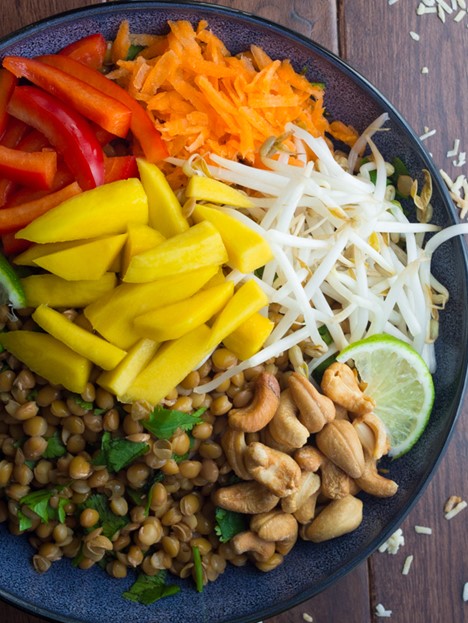Why You Should Supplement with a Vegetarian Diet?
Category: Healthy Choices

Plant-based nutrition has a multitude of health benefits. Any movement toward whole food, plant-based eating can greatly improve your health and potentially lower the risk of disease. However, it can be difficult, if not impossible, to get enough essential nutrients which can lead to deficiencies.
In our webcast, Scientists’ Guide to Plant-Based Living, Dr. John Westerdahl emphasized eating a diverse plant-based diet and recommends incorporating nutritional supplements to ensure you get all the nutrients that your body needs.

Here are the key nutrients you’ll want to supplement if you’re moving toward a vegetarian or vegan diet:
Protein – Although plant-based foods contain protein, you often end up eating a simple carb-heavy diet. You’d need to eat 10 cups of raw broccoli to get 20 grams of protein, but you can get 20 g of ultra-pure protein with one serving of a high quality vegetable-based protein shake a day.
Calcium – The Dieticians Guide to Vegetarian Diets references 45 studies that concluded many vegetarians are only getting 500 – 600 mg per of calcium a day. The Recommended Daily Allowance (RDA) is 1000 – 1200 mg depending on age and sex. There are a couple of supplements I recommend, with which you can shore up your intake with 1,300 mg of elemental calcium.
Vitamin B12 -Vitamin B12 is not a component of plant foods, so Vegans must get it from fortified foods or supplements. Even though B12 is the issue, taking all the B vitamins in combination is an even better option. Look for a supplement that delivers the perfect balance of all eight B vitamins, including 81 mcg of vitamin B12.
Iron – Iron stores of vegetarians are typically below those of nonvegetarians. Heme iron, found in animal meat, is better absorbed by the body compared to non-heme iron found in plant foods, which can lead to a deficiency. Taking Vitamin C, hower, enhances the absorption of non-heme iron. Look for a high-quality Iron supplement with at least 18 mg of iron (100% DV in a readily bioavailable form, with vitamin C to help increase iron absorption .
And, finally, don’t forget to take a high-quality Multivitamin that delivers at least 18 mg of iron (100% DV) per serving, including twice the DV of vitamins C, D, and E – plus beta-carotene.
To see what to look for in a high-quality supplement, see my previous posts on this subject. Or, you can contact me at Jerry@fit4lifellc.com, or visit my Wellnss Center.



Facebook Comments